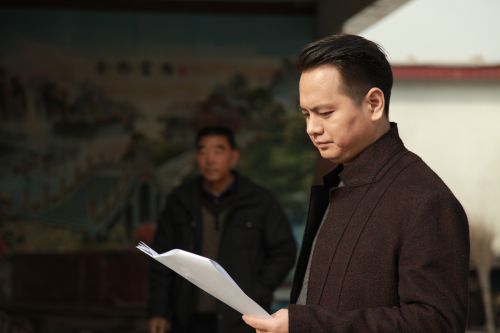
李明阳工作照
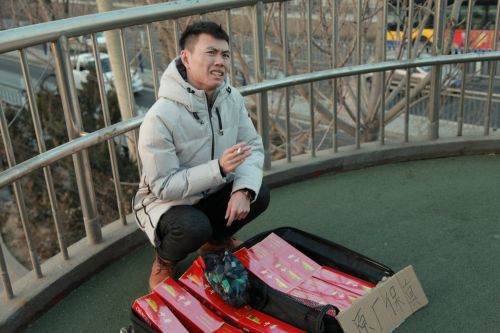
《回家过年》剧照
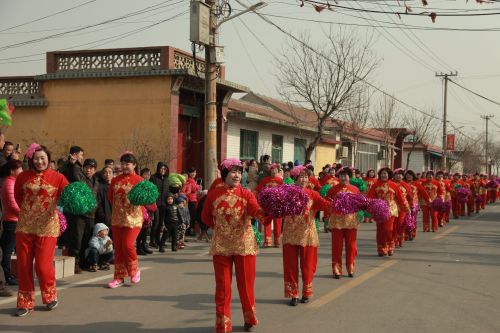
《回家过年》剧照
回家过年
Home For the Holidays
世界首映
World Premiere
中国 | 2018 | 彩色 | 39分钟 | 剧情
China | 2018 | Color | 39min | Fiction
导演/编剧/美术 | 李明阳
摄影 | 卢晟
剪辑 | 路袁棋
音效 | 赵甦晨
演员 | 李明阳、艾秀梅、李福兴、王曰良
导演简介
李明阳,电影制片人,荣获第十届华语青年影像论坛年度制片人奖。制片人电影作品: 《疯狂的蠢贼》、《照见》、《在码头》等。《照见》荣获第29届瑞士弗里堡国际电影节“评委会特别奖”、第18届上海国际电影节亚洲新人奖“最佳编剧奖(提名)”及“特别推荐表彰”,第39届香港国际电影节最佳影片提名等。电影《在码头》,该片由贾樟柯监制,韩东导演,入围2016年上海国际电影节创投单元,入围第22届釜山国际电影节新浪潮竞赛单元。《回家过年》是其导演处女作短片。
Director's Biography
Li Mingyang: Film producer, winner of the Best Producer Award at the 10th Chinese Young Generation Film Forum. His executive production credits include films such as Gray Foolish Thieves, ATA, and One Night on the Wharf. ATA won the Special Jury Award at the Fribourg International Film Festival, won Special Recommendation and was nominated for Best Scriptwriter in the 18th Shanghai International Film Festival’s Asian New Talent category, and was nominated for Best Picture at the 39th Hong Kong International Film Festival. One Night on the Wharf, executive-produced by Jia Zhangke and directed by author Han Dong, was entered into the 2016 Shanghai International Film Festival’s SIFF Project program, and the 22nd Busan International Film Festival’s New Currents main competition. Home for the Holidays is his directorial debut.
导演阐述
2007年,我从山东农村,来到北京。刚到北京时候,立志10年之内,要在北京有房有车。11年过去了,发生了很多事情,只是房子和车子依旧没有。这部短片就是拍摄了我自己的一段真实经历。
影片还原了当下中国新农村的生存现状。来平和爹娘都是离开农村,进入城市的人,大姨夫一家是新农村的代表。我们背井离乡来到城市的人,想通过自己的奋斗留在城市并融入这个城市,最后却发现这个城市根本没有想过接纳你。我们无法拥有城市,却也早已失去了乡村。来平信佛吃素,这种信仰文化带给农村人的冲击,所有人都劝他吃肉,他成了一个孤独者,一个再也回不去的人。我们每个人对生活都充满了希望,却依旧无法摆脱现实的无力感。
Director’s Statement
In 2007, I came to Beijing from rural Shandong. When I first arrived in Beijing, I was determined to have a house and a car in Beijing within 10 years. Eleven years later, many things have happened, but the house and car are still not there. This short film is a true story of my own. The film restores the existing situation of China's new rural areas. Those of us who have left home and come to the city want to stay in the city and integrate into the city through our own efforts, only to find that the city has never thought of accepting you. We can't have cities, but we've lost the countryside. Each character filled with hope, yet each powerless to escape their reality.
剧情简介
来平来自农村,担任过一部电影的主演,家人以他为荣。他转型做制片人后遭遇事业低谷。春节到了,为了维护自己事业有成的形象,来平买了两条假中华烟踏上了回家的路。
回家后,面对满桌子的排骨、鸡肉,来平告诉家人,现在已经信佛吃素了。大姨夫埋怨来平中华烟太贵了,来平说不是买的,是有人求他办事给他送的礼。大姨夫谁也不给,只是自己抽,所有人都说大姨夫小气。
年三十晚上,娘偷偷告诉来平,大姨夫说这烟是假的。来平大惊,表示要给送礼的人打电话,来平娘阻拦,说人家求你办事不会买假烟的,你那个朋友肯定是让卖烟的给骗了。来平和娘去给值夜班的爹送饺子,陪爹吃年夜饭。来平拨通大哥的视频电话,窗外烟花绚烂,爹娘等待着视频接通。
Synopsis
Laiping was born in the countryside, and after a turn as a film star, he’s the pride of the family. After becoming a film producer, he finds it hard to make ends meet. At Chinese New Year, to preserve the appearance of success, he goes home with two cartons of fake cigarettes. Once home, faced with plates of ribs, and chicken, Laiping tells his family that he’s become a Buddhist, and a vegetarian. He gave him the smoke to his uncle. His uncle won’t share the cigarettes with anyone. On New Year’s Eve, Laiping’s mother secretly tells him that his uncle has mentioned the fake cigarettes. Laiping and his mother bring dumplings to his father, who’s still at work. Laiping calls his elder brother on video chat, and the whole family waits for his brother to accept the call.
“乡愁是冒牌的中华烟,我点这头,姨夫抽那头。乡愁是推到眼前的肉,我念着佛,娘念着我。乡愁是除夕夜接不通的电话,父母在这头,儿子在那头。日常的生活经验被提炼成有意味的情境。中国城乡间的沟壑也随之融进了轻松的调侃之中。”
“Nostalgia is a fake Chunghwa cigarette, I lighted this side, and my uncle lighted the other side. Nostalgia is the meat put in front of me, when I was thinking about Buddhism, my mom was thinking about me. Nostalgia is the unreachable phone on New Year’s Eve, parents are on one side, and the son is at another.
Normal life experience is abstracted as a special mood. The hills and valleys in China are blurred into easy banter.”

 栏目导航
栏目导航 


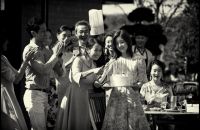





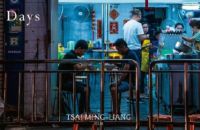

 甘公网安备 62010502000332号
甘公网安备 62010502000332号